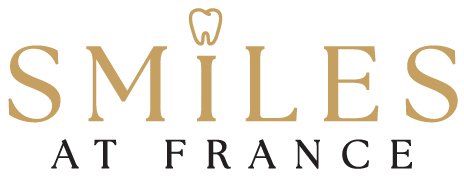TMD – Temporal Mandibular Disorders
Experienced Treatment Of Temporal Mandibular Disorders (TMD Or TMJ)
Temporal Mandibular Disorders cause a wide range of issues, including:
- Pain in and around the temporal mandibular jaw joints (TMJ) – joint pain
- Pain in the chewing muscles – jaw pain
- Pain about the head – headache pain
- Pain in and around the upper throat – throat or tongue muscle pain
- Painful or sensitive teeth to pressure and temperatures – tooth pain
For many, clenching and rubbing (bruxism) of their teeth at nighttime or during the day may be causing or at least contributing to these types of pain. Our practice has a special interest and success in addressing and alleviating these common problems.


Clenching Disorders
Many people either have, once had, or will have a clenching disorder. Clenching disorders are more common than you might think. Clenching disorders are the conscious or unconscious squeezing, tapping, clenching, rubbing or grinding of your teeth together at night while you sleep or at times during the day. For some, this disorder causes pain. For others, it goes on unrecognized for years until the health or aesthetics of the mouth can become severely compromised.
The severity of clenching disorders falls into a continuum, with painless clenching on one end and painful clenching on the other.
Treating TMJ and TMD (Temporal Mandibular Disorders)
The Painful Clencher
Headaches—Temporal, Eyes, Back of Neck
People with painful clenching may suffer from headaches around the temples, the eyes or back of the neck. The frequent squeezing, tensing and fatiguing of these jaw muscles often leads to “tension” headaches. In fact, many “sinus” headaches are from clenching the muscles of the jaws and face. Stress, poor hydration and lack of sleep may aggravate these pains.
Headaches—Migraine Trigger
Nightly clenching may be a significant trigger for migraine headaches. Many migraine sufferers gain migraine pain relief by proper management of their nightly clenching. The same nightly clenching that triggers a “tension” headache becomes more severe in the person prone to migraines. If you suffer from migraines, it may pay to be evaluated for clenching as a driving factor.
Temporal Mandibular Jaw Joint (TMJ) Pain
Painful clenchers may have pain in their temporal mandibular jaw joints (TMJ), difficulty chewing, clicking or catching jaw joints, or limited jaw opening. In these people, the joint and surrounding ligaments become stressed by the action of the powerful clenching muscles. These people may feel or hear their jaw joints click, pop or get stuck. Dr. Helget can help you with this issue.
The Painless Clencher
Front Teeth Get Shorter, Rougher or Keep on Chipping
In the painless clencher, it’s the teeth that take the abuse. The front teeth continue to wear, chip, roughen or crack as they are rubbed or gnashed together at night. Often this was painful clenching in the past. However, when the muscles get healthy, the joints become resistant to pain and the clencher is no longer prone to headaches.
The Annoying Clencher
Sore Jaw Muscles or Throat Pain
Annoying clenchers may have sore muscles near the sides of their jaws or cheeks. They may even complain of a sore throat near the front of their neck. Throat soreness can be from the tongue pushing hard against the teeth while they clench at night. These people might not have headaches, just annoying soreness around their lower face or neck. However, while they clench, their teeth take a beating. One of the signs of nighttime clenching is the scalloped appearance of the sides of your tongue or a calloused white line on the sides of your cheeks.
Sensitive Teeth, Itching Teeth or Gums
Annoying clenchers may complain of wandering tooth sensitivity that travels around their mouths. It can be continual, even tooth specific. Teeth become sensitive to cold, or even to the touch of a toothbrush or dental probe. Having their teeth cleaned may be uncomfortable. Teeth or gums may feel itchy after a night of clenching. Annoying clenchers may wake up feeling like they have been squeezing their teeth together. For all of these sensitivities, nightly clenching may be the culprit. Teeth react to excessive clenching by becoming sensitive to cold or tender to chewing. The tops of your front teeth may become sensitive to nighttime grinding. Teeth do not like the nightly beating. Sometimes back teeth will even crack under the repeated pressures.
If you are seeking solutions for treating TMJ or TMD or clenching teeth, please contact Smiles at France at 612-824-7033 today. Dr. Allison Helget is conveniently located at 50th & France in Edina / Minneapolis, MN. Dr. Helget is an expert in this field and treats patients from all over the Twin Cities including Minneapolis, Edina, Eden Prairie, Bloomington, Golden Valley, Minnetonka and surrounding areas.
Experienced Treatment Of Temporal Mandibular Disorders (TMD Or TMJ)

Temporal Mandibular Disorders cause a wide range of issues, including:
- Pain in and around the temporal mandibular jaw joints (TMJ) – joint pain
- Pain in the chewing muscles – jaw pain
- Pain about the head – headache pain
- Pain in and around the upper throat – throat or tongue muscle pain
- Painful or sensitive teeth to pressure and temperatures – tooth pain
For many, clenching and rubbing (bruxism) of their teeth at nighttime or during the day may be causing or at least contributing to these types of pain. Our practice has a special interest and success in addressing and alleviating these common problems.
Clenching Disorders

Many people either have, once had, or will have a clenching disorder. Clenching disorders are more common than you might think. Clenching disorders are the conscious or unconscious squeezing, tapping, clenching, rubbing or grinding of your teeth together at night while you sleep or at times during the day. For some, this disorder causes pain. For others, it goes on unrecognized for years until the health or aesthetics of the mouth can become severely compromised.
The severity of clenching disorders falls into a continuum, with painless clenching on one end and painful clenching on the other.
Treating TMJ and TMD (Temporal Mandibular Disorders)
The Painful Clencher
Headaches—Temporal, Eyes, Back of Neck
People with painful clenching may suffer from headaches around the temples, the eyes or back of the neck. The frequent squeezing, tensing and fatiguing of these jaw muscles often leads to “tension” headaches. In fact, many “sinus” headaches are from clenching the muscles of the jaws and face. Stress, poor hydration and lack of sleep may aggravate these pains.
Headaches—Migraine Trigger
Nightly clenching may be a significant trigger for migraine headaches. Many migraine sufferers gain migraine pain relief by proper management of their nightly clenching. The same nightly clenching that triggers a “tension” headache becomes more severe in the person prone to migraines. If you suffer from migraines, it may pay to be evaluated for clenching as a driving factor.
Temporal Mandibular Jaw Joint (TMJ) Pain
Painful clenchers may have pain in their temporal mandibular jaw joints (TMJ), difficulty chewing, clicking or catching jaw joints, or limited jaw opening. In these people, the joint and surrounding ligaments become stressed by the action of the powerful clenching muscles. These people may feel or hear their jaw joints click, pop or get stuck. Dr. Helget can help you with this issue.
The Annoying Clencher
Sore Jaw Muscles or Throat Pain
Annoying clenchers may have sore muscles near the sides of their jaws or cheeks. They may even complain of a sore throat near the front of their neck. Throat soreness can be from the tongue pushing hard against the teeth while they clench at night. These people might not have headaches, just annoying soreness around their lower face or neck. However, while they clench, their teeth take a beating. One of the signs of nighttime clenching is the scalloped appearance of the sides of your tongue or a calloused white line on the sides of your cheeks.
Sensitive Teeth, Itching Teeth or Gums
Annoying clenchers may complain of wandering tooth sensitivity that travels around their mouths. It can be continual, even tooth specific. Teeth become sensitive to cold, or even to the touch of a toothbrush or dental probe. Having their teeth cleaned may be uncomfortable. Teeth or gums may feel itchy after a night of clenching. Annoying clenchers may wake up feeling like they have been squeezing their teeth together. For all of these sensitivities, nightly clenching may be the culprit. Teeth react to excessive clenching by becoming sensitive to cold or tender to chewing. The tops of your front teeth may become sensitive to nighttime grinding. Teeth do not like the nightly beating. Sometimes back teeth will even crack under the repeated pressures.
The Painless Clencher
Front Teeth Get Shorter, Rougher or Keep on Chipping
In the painless clencher, it’s the teeth that take the abuse. The front teeth continue to wear, chip, roughen or crack as they are rubbed or gnashed together at night. Often this was painful clenching in the past. However, when the muscles get healthy, the joints become resistant to pain and the clencher is no longer prone to headaches.
If you are seeking solutions for treating TMJ or TMD or clenching teeth, please contact Smiles at France at 612-824-7033 today. Dr. Allison Helget is conveniently located at 50th & France in Edina / Minneapolis, MN. Dr. Helget is an expert in this field and treats patients from all over the Twin Cities including Minneapolis, Edina, Eden Prairie, Bloomington, Golden Valley, Minnetonka and surrounding areas.
